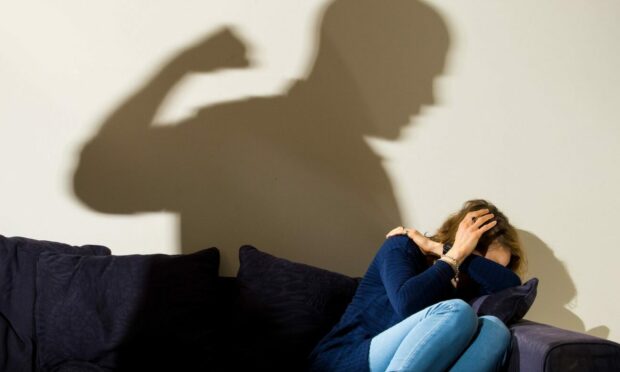Dundee has the highest rate of domestic abuse of any city in Scotland.
New figures have shown domestic abuse reports in Scotland have risen for the fourth year in a row, with Dundee having the most cases per population.
A new report by the Scottish Government shows the number of domestic abuse reports to police are now at a 20-year high.
The report presents the domestic abuse statistics recorded during 2019-20.
The Scottish average of domestic abuse incidents was 115 per 10,000 people.
Dundee city ranked the highest local authority in Scotland, with an average of 166 per 10,000, followed by Clackmannanshire with 152 and Glasgow City with 151.
It is the second year Dundee has been named worst in Scotland.
Reports of domestic abuse have risen in Scotland over the last four years as a total of 62,907 reports were recorded in 2019-20, compared to 33,187 in 1999-2000.
The report also shows that more than four out of five victims of domestic abuse last year were female, as 82% of incidents involved a female victim and a male accused.
The most frequently recorded type of crime or offence for domestic abuse reports was common assault, which accounted for 34% of incidents.
Breach of the peace was second, which accounted for 26% of crimes and offences for domestic abuse.
Weekends were found to be when domestic abuse incidents occurred the most, with both Saturday and Sunday accounting for 34% of reports.
Jamie Greene, MSP and Scottish Conservative justice spokesman, blamed Scottish Government plans to phase out prison sentences of less than a year, saying this would result in an even more relaxed approach against guilty domestic abusers.
The report shows that in 59% of recorded domestic abuse cases, the victim or the accused had previously been involved in a similar incident.
It also shows fewer than half (40%) of domestic abuse incidents reported last year resulted in police recording a crime or offence.
‘Soft-touch justice is not working’
Mr Greene said: “These figures show the SNP have completely failed to tackle rising domestic abuse cases despite warnings from all quarters.
“It is clear that the SNP’s soft-touch justice approach is not working with domestic abuse incidents having reached yet another record, shameful high.
“Those guilty of domestic abuse are simply not being properly punished.
“We continually warned SNP ministers their effective scrapping of prison sentences of less than a year would do nothing to clamp down on these sort of crimes.
“Our hardworking officers on the frontline have also clearly not be given the resources they need to fully tackle these incidents by the SNP government.
“With over 150 domestic abuse incidents happening every single day in Scotland, these figures are an urgent wake-up call.
“Every single victim of domestic violence deserves the whole justice system to be on their side.
“The SNP’s new justice secretary must immediately abandon his party’s soft-touch justice approach which is only letting more and more domestic abusers off the hook.”
‘Unacceptable’
Responding to the report, justice secretary Keith Brown said the figures are “unacceptable” but said changes to domestic abuse law show the government’s stance against violent crime.
“These statistics are a stark reminder of the unacceptable levels of domestic abuse that occur in Scotland,” he said.
“A person’s home should be a place of safety and we know that is not always the case and women are disproportionately victims of domestic abuse.
“The new offence of domestic abuse has been heralded as gold-standard legislation in strengthening the law against those who undertake a course of abusive behaviour, including both physical and psychological abuse, and we have been clear that we want to see all incidents of domestic abuse reported.”
